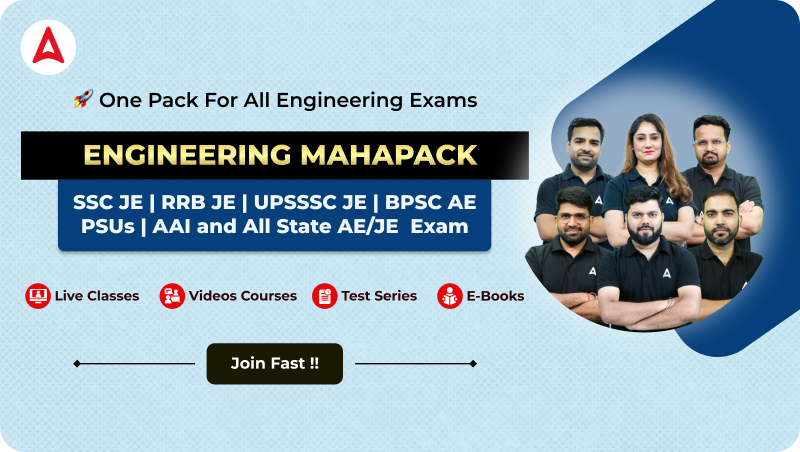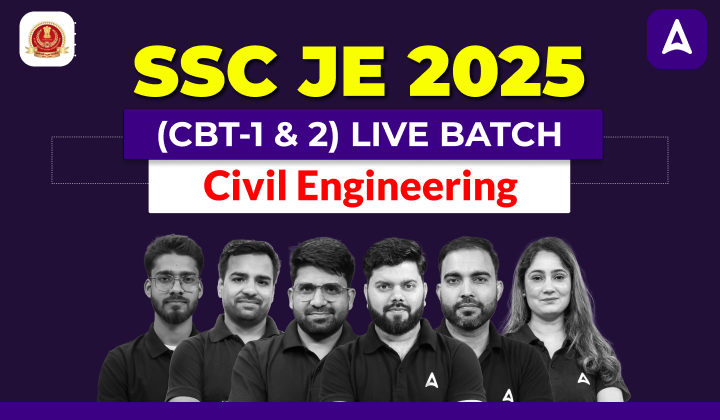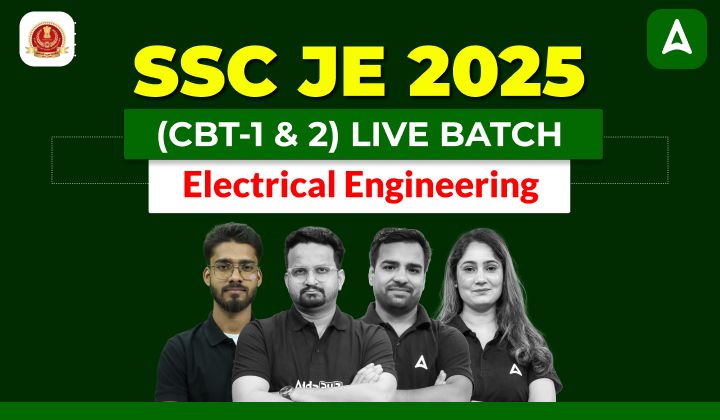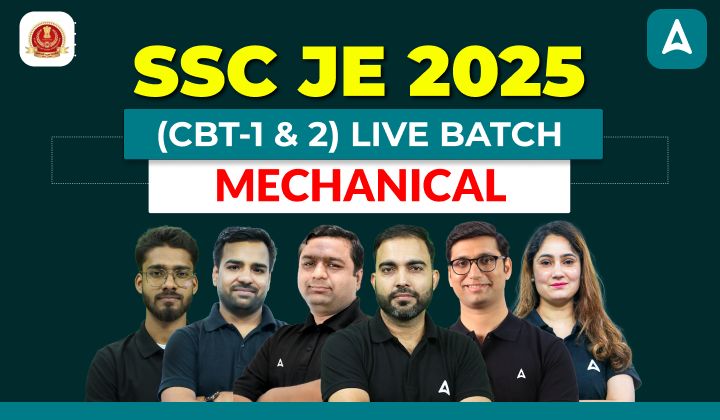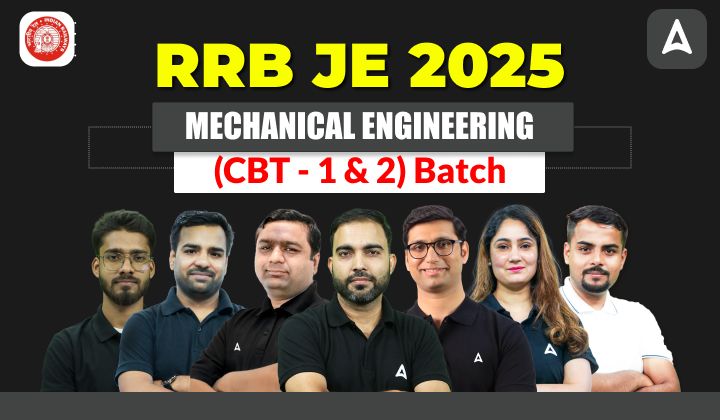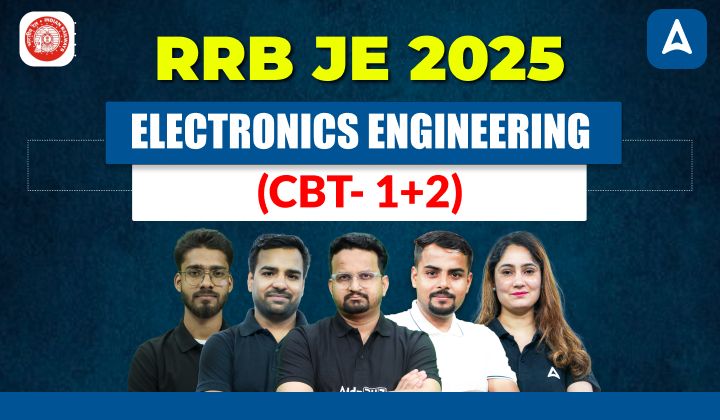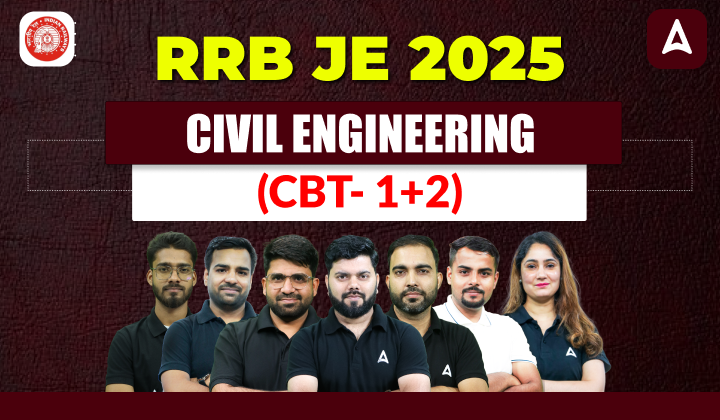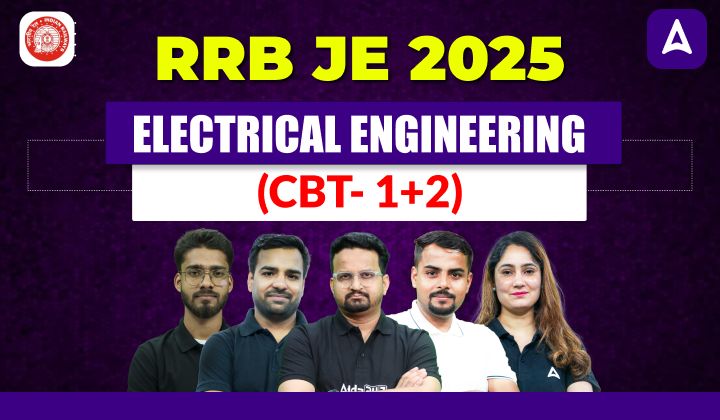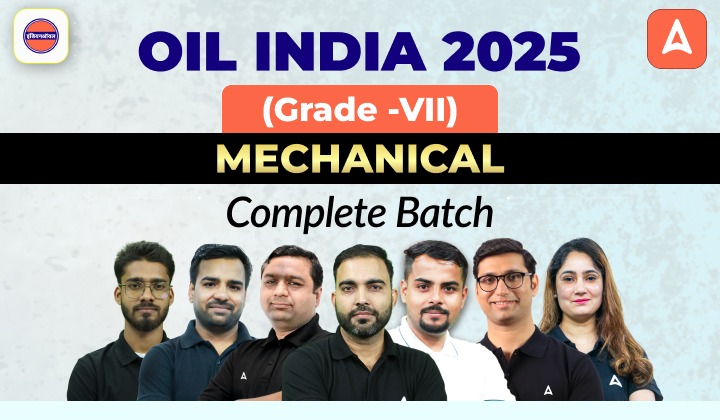Table of Contents
The GATE 2026 exam will be organized by the Indian Institute of Technology (IIT) Guwahati. This exam is for students who want to join postgraduate courses like ME, M.Tech, and Ph.D. in top colleges across India. A good GATE score can also help in getting jobs in Public Sector Undertakings (PSUs) for roles like Engineer Trainee, Management Trainee, and other similar positions in different departments. IIT Guwahati has uploaded the official GATE 2026 syllabus on its website www.iitg.ac.in. This syllabus includes all the topics for each subject that will be part of the exam. Understanding the syllabus properly helps students focus on the right topics and know how the marks are divided in each section. A clear knowledge of the syllabus makes preparation easier and increases the chances of scoring well in the exam.
GATE Exam Syllabus 2026
To prepare well for the GATE 2026 exam, it’s important for students to fully understand the complete syllabus. The syllabus shows which topics are important and how much each part is worth in the exam. When students study according to the syllabus, they can make a better study plan and aim for a higher score. IIT Guwahati has shared the GATE syllabus PDF for all branches on its official website. Students getting ready for GATE 2026 should check the full syllabus using the direct link provided here.
GATE Syllabus 2026 Highlights
The GATE Syllabus includes all the topics and sub-topics that will be covered in the exam. Test takers should download the GATE Syllabus PDF to start their preparation.
| GATE Exam Syllabus 2026 | |
| GATE Full Form | Graduate Aptitude Test for Engineering (GATE) |
| GATE Conducting Authority | Indian Institute of Technology Guwahati |
| GATE 2026 Total No. of Papers | 30 (Data Science & Artificial Intelligence added) |
| GATE 2026 Starting Date of Application | 25 August 2025 |
| GATE 2026 Last Date of Application(without late fees) | 25 September 2025 |
| Mode of Exam | Computer-Based Test (CBT) |
| Number of Questions Asked | 65 |
| GATE 2026 Marks Distribution | 100 Marks[ 15 General Aptitude + 85 Subject Questions] |
| GATE Exam Language | English |
| GATE 2026 Marking Scheme | One Mark and Two Marks |
| GATE 2026 Syllabus | Available Now |
| Negative Marking | Yes (for MCQ & MSQ) |
| GATE 2026 Syllabus Official Website | www.gate2026.iitg.ac.in |
Click here for the GATE 2026 Study Kit
GATE Syllabus 2026 – Branch Wise
Aspiring candidates preparing for the GATE 2026 Exam need to focus on key topics that are critical for the GATE Exam. Gaining a comprehensive understanding and mastery of these subject-wise topics from the GATE Syllabus 2026 is crucial for anyone aiming to achieve high scores in this year’s GATE Exam.
GATE 2026 Electrical Engineering Syllabus
| Section | Topics |
| Engineering Mathematics | Linear Algebra (matrices, determinants, eigenvalues, eigenvectors), Calculus, Differential Equations, Complex Variables, Probability and Statistics, Numerical Methods, Transform Theory (Laplace, Fourier, Z). |
| Electric Circuits | Network graph, KCL, KVL, node and mesh analysis, transient analysis of RL, RC, RLC circuits, sinusoidal steady-state, resonance, two-port networks, Thevenin, Norton, superposition, maximum power transfer. |
| Electromagnetic Fields | Coulomb’s law, Gauss’s law, electric field intensity, electric flux density, divergence, gradient, curl, Ampere’s law, Biot–Savart law, Faraday’s law, Maxwell’s equations, plane waves, transmission lines, waveguides. |
| Signals and Systems | Continuous-time and discrete-time signals, Fourier, Laplace and Z-transforms, LTI systems, convolution, impulse response, frequency response, sampling theorem, filters. |
| Electrical Machines | Single-phase transformers (equivalent circuit, phasor diagram, tests), three-phase transformers, DC machines, induction machines (three-phase and single-phase), synchronous machines, torque-speed characteristics. |
| Power Systems | Power generation concepts, transmission line parameters, per-unit system, load flow, fault analysis, power factor correction, economic operation, stability, HVDC, FACTS, protection and relays. |
| Control Systems | Feedback, block diagrams, signal flow graphs, time-domain analysis, stability (Routh, Nyquist, Bode), root locus, frequency response, compensators, controllers (PID). |
| Electrical and Electronic Measurements | Bridges (Wheatstone, Maxwell, Wien), PMMC, moving iron, measurement of voltage, current, power, energy, power factor, digital voltmeters, oscilloscopes, instrument transformers. |
| Analog and Digital Electronics | Diodes, BJT, MOSFET, amplifiers, oscillators, feedback, operational amplifiers (applications), combinational and sequential logic, number systems, ADC/DAC, microprocessors basics. |
| Power Electronics | Diodes, thyristors, MOSFETs, IGBTs, rectifiers, choppers, inverters, AC regulators, pulse-width modulation (PWM), DC-DC, AC-AC and DC-AC converters, motor drives. |
GATE 2026 Civil Engineering Syllabus
| Section | Topics |
| Engineering Mathematics | Linear Algebra (matrices, determinants, eigenvalues, eigenvectors), Calculus, Differential Equations, Probability and Statistics, Numerical Methods, Transform Theory. |
| Structural Engineering | Engineering mechanics, bending moment, shear force, stress-strain relations, Mohr’s circle, elastic constants, deflection, Euler’s buckling, working stress and limit state design, design of beams, columns, slabs, foundations. |
| Geotechnical Engineering | Soil properties, classification, permeability, compaction, consolidation, shear strength, earth pressure theories, stability of slopes, shallow and deep foundations, bearing capacity, pile foundations. |
| Water Resources Engineering | Fluid properties, hydrostatics, buoyancy, pipe flow, dimensional analysis, hydraulic machines (turbines, pumps), hydrology (precipitation, infiltration, evaporation, runoff), irrigation (canals, wells, water requirements). |
| Environmental Engineering | Water and wastewater quality parameters, water treatment, sewage treatment, air pollution, noise pollution, municipal solid waste, environmental impact assessment. |
| Transportation Engineering | Highway planning, geometric design, traffic engineering, pavement materials, design of flexible and rigid pavements, railway, airport, and harbor engineering basics. |
| Geomatics Engineering | Principles of surveying, leveling, traverse, tacheometry, curves, GPS, remote sensing, GIS basics, photogrammetry. |
| Construction Materials & Management | Properties of construction materials, concrete technology, mix design, quality control, project management, CPM, PERT, cost estimation, contracts. |
GATE 2026 Mechanical Engineering Syllabus
| Section | Topics |
| Engineering Mathematics | Linear Algebra, Calculus, Differential Equations, Probability and Statistics, Numerical Methods, Transform Theory (Laplace, Fourier, Z). |
| Applied Mechanics & Design | Engineering Mechanics (free-body diagrams, equilibrium, friction, kinematics/dynamics), Mechanics of Materials (stress, strain, Mohr’s circle, bending, torsion, thermal stresses, buckling), Theory of Machines (kinematics, cams, gears, governors, balancing, vibrations), Machine Design (design against static and fatigue loads, failure theories, bolted/riveted/welded joints, shafts, bearings, springs, gears, brakes, clutches). |
| Fluid Mechanics & Thermal Sciences | Fluid Mechanics (properties, fluid statics, manometry, Bernoulli, flow through pipes, dimensional analysis, boundary layer, pumps, turbines), Heat Transfer (conduction, convection, radiation, heat exchangers), Thermodynamics (properties of pure substances, first & second laws, entropy, availability, power cycles – Rankine, Brayton, Otto, Diesel, refrigeration cycles), IC Engines, Compressors. |
| Materials, Manufacturing & Industrial Engineering | Engineering Materials (structure, properties, phase diagrams, heat treatment, composites), Casting (moulding, solidification, defects), Forming (hot/cold working, forging, rolling, extrusion, drawing), Machining (cutting tool geometry, mechanics, tool life, turning, milling, drilling, grinding, economics), Joining (welding, brazing, soldering), Computer Integrated Manufacturing (CNC, CAD/CAM), Metrology and Inspection (limits, fits, tolerances, comparators, measurement methods), Production Planning & Control (forecasting, scheduling, inventory, MRP, lean manufacturing), Operations Research (linear programming, queuing, value engineering, PERT/CPM). |
GATE 2026 Computer Science Engineering Syllabus
| Section | Topics |
| Engineering Mathematics | Discrete Mathematics (propositional logic, predicates, sets, relations, functions, groups, lattices, graphs, trees), Linear Algebra, Calculus, Probability and Statistics. |
| Digital Logic | Boolean algebra, combinational circuits, minimization, sequential circuits, number representations, floating point arithmetic. |
| Computer Organization & Architecture | Machine instructions, addressing, ALU, data path, control unit, memory hierarchy (cache, main memory, secondary storage), I/O systems, instruction pipelining, RISC vs CISC. |
| Programming & Data Structures | C/C++/Java basics, recursion, arrays, stacks, queues, linked lists, trees, binary search trees, heaps, graphs, hashing. |
| Algorithms | Searching, sorting, graph algorithms (DFS, BFS, shortest paths, MST), dynamic programming, greedy algorithms, complexity (time & space), NP-completeness. |
| Theory of Computation | Regular languages, context-free languages, pumping lemmas, Turing machines, decidability, complexity classes (P, NP, NP-complete, NP-hard). |
| Compiler Design | Lexical analysis, parsing, syntax-directed translation, runtime environments, intermediate code generation, code optimization, code generation. |
| Operating Systems | Processes, threads, CPU scheduling, synchronization, deadlocks, memory management, paging, segmentation, file systems. |
| Databases | ER models, relational model, relational algebra, SQL, normalization, indexing, transactions, concurrency, recovery. |
| Computer Networks | OSI and TCP/IP models, LAN/WAN, switching, flow control, error control, congestion control, routing, transport protocols (TCP, UDP), application protocols (DNS, HTTP, FTP, SMTP). |
| Software Engineering | Software process models, agile methods, requirements, design, testing, maintenance, project management. |
GATE 2026 Chemical Engineering Syllabus
| Section | Topics |
| Engineering Mathematics | Linear Algebra, Calculus, Differential Equations, Probability and Statistics, Numerical Methods. |
| Process Calculations & Thermodynamics | Laws of thermodynamics, phase equilibria, chemical reaction equilibria, energy balance, material balance, fuels and combustion. |
| Fluid Mechanics & Mechanical Operations | Fluid properties, fluid statics, Bernoulli equation, flow in pipes, pumps, compressors, fluidization, filtration, sedimentation, centrifugation, screening, size reduction. |
| Heat Transfer | Conduction, convection, radiation, heat exchangers, evaporators, condensation, boiling. |
| Mass Transfer | Diffusion, mass transfer coefficients, distillation, absorption, extraction, drying, humidification, membrane separation. |
| Chemical Reaction Engineering | Kinetics of homogeneous reactions, reactor design (batch, plug flow, CSTR), non-ideal reactors, RTD, heterogeneous catalysis. |
| Instrumentation & Process Control | Transducers, measurement of process variables, dynamics of processes, transfer functions, feedback control, stability, tuning of controllers. |
| Plant Design & Economics | Process design, cost estimation, profitability, depreciation, project evaluation, safety, environmental considerations. |
| Chemical Technology | Inorganic industries (sulphuric acid, ammonia, fertilizers, cement), organic industries (petrochemicals, polymers, dyes, drugs), environmental pollution control methods. |
GATE 2026 Latest Syllabus
It’s important to note that the Graduate Aptitude Test for Engineering Exam 2026 will be exclusively based on the GATE New Syllabus. Therefore, engineering graduates and third-year students should acquaint themselves with the GATE Latest Syllabus, which covers areas such as Data Science & Artificial Intelligence, Civil, Electrical, Mechanical, and more.
| Name of Subjects | Syllabus PDF |
| English | Download PDF |
| Reasoning and Comprehension | Download PDF |
| General Aptitude | Download PDF |
GATE Syllabus 2026 Branch Wise PDF
Candidates must have a clear understanding of the GATE syllabus to develop an efficient preparation approach. The syllabus caters to the GATE exam’s 30 various disciplines, with each branch having its own defined syllabus provided by the appropriate authorities. Candidates can obtain the GATE syllabus 2026 by downloading it from the link provided below.
| GATE Syllabus 2026 Branch Wise PDF | |
| Branch | Syllabus PDF |
| Aerospace Engineering | Download PDF |
| Agriculture Engineering | Download PDF |
| Architecture and Planning | Download PDF |
| Biomedical Engineering | Download PDF |
| Biotechnology | Download PDF |
| Civil Engineering | Download PDF |
| Chemical Engineering | Download PDF |
| Computer Science and Engineering | Download PDF |
| Chemistry | Download PDF |
| Data Science & Artificial Intelligence | Download PDF |
| Electronics and Communication Engineering | Download PDF |
| Electrical Engineering | Download PDF |
| Environmental Science and Engineering | Download PDF |
| Ecology and Evolution | Download PDF |
| Geomatics Engineering | Download PDF |
| Geology and Geophysics | Download PDF |
| Instrumentation Engineering | Download PDF |
| Mathematics | Download PDF |
| Mechanical Engineering | Download PDF |
| Mining Engineering | Download PDF |
| Metallurgical Engineering | Download PDF |
| Naval Architecture and Marine Engineering | Download PDF |
| Petroleum Engineering | Download PDF |
| Physics | Download PDF |
| Production and Industrial Engineering | Download PDF |
| Statistics | Download PDF |
| Textile Engineering and Fibre Science | Download PDF |
| Engineering Sciences | Download PDF |
| Fluid Mechanics | Download PDF |
| Materials Science | Download PDF |
| Solid Mechanics | Download PDF |
| Thermodynamics | Download PDF |
| Polymer Science and Engineering | Download PDF |
| Food Technology | Download PDF |
| Atmospheric and Oceanic Sciences | Download PDF |
| Energy Science | Download PDF |
| Economics | Download PDF |
| Linguistics | Download PDF |
| Philosophy | Download PDF |
| Psychology | Download PDF |
| Sociology | Download PDF |
| Chemistry | Download PDF |
| Biochemistry | Download PDF |
| Botany | Download PDF |
| Microbiology | Download PDF |
| Zoology | Download PDF |
| Food Technology | Download PDF |
GATE Exam Pattern 2026
In the GATE 2024 Exam, every one of the questions will be 1 mark and 2 marks in total, 100 marks. Eligible Candidates should check the GATE Exam Pattern 2026 to understand the exam briefly by knowing the number of questions, total marks, and so on, down underneath:
| GATE Exam Pattern | |
| Particulars | Details |
| GATE 2026 Mode of Examination | Computer-Based Test (CBT) |
| GATE 2026 Total Time Duration | 3 hours (180 minutes) |
| GATE 2026 Total Number of Subjects (Papers) | 30 |
| GATE 2026 Exam Sections |
|
| GATE 2026 Type of Questions |
|
| GATE 2026 Number of Questions | 10 (GA) + 55 (subject) = 65 Questions |
| GATE 2026 Distribution of Marks in all Papers except papers AR, CY, DA, EY, GG, MA, PH, ST, XH, and XL |
|
| GATE 2026 Distribution of Marks in papers AR, CY, DA, EY, GG, MA, PH, ST, XH, and XL |
|
| GATE 2026 Marking Scheme | Questions carry 1 mark and 2 marks. |
| GATE 2026 Negative Marking |
|
GATE Syllabus-Based Preparation Tips
The GATE Syllabus 2026 is extensive, so those planning to take the exam need a solid strategy to cover all the key topics in their subjects.
Here are some top GATE preparation tips that successful candidates have used:
- Begin your GATE preparation by thoroughly understanding the syllabus. This helps you identify the important topics and organize your study plan.
- Review the GATE 2026 exam pattern to become familiar with the structure of the question paper and the time limits.
- Take GATE 2026 mock tests every day to improve your time management skills.
- Use the best GATE books and online courses to gain a deeper understanding of complex topics.
- Solve as many previous years’ GATE question papers as possible. This helps you understand how the papers are set and identify frequently asked topics.

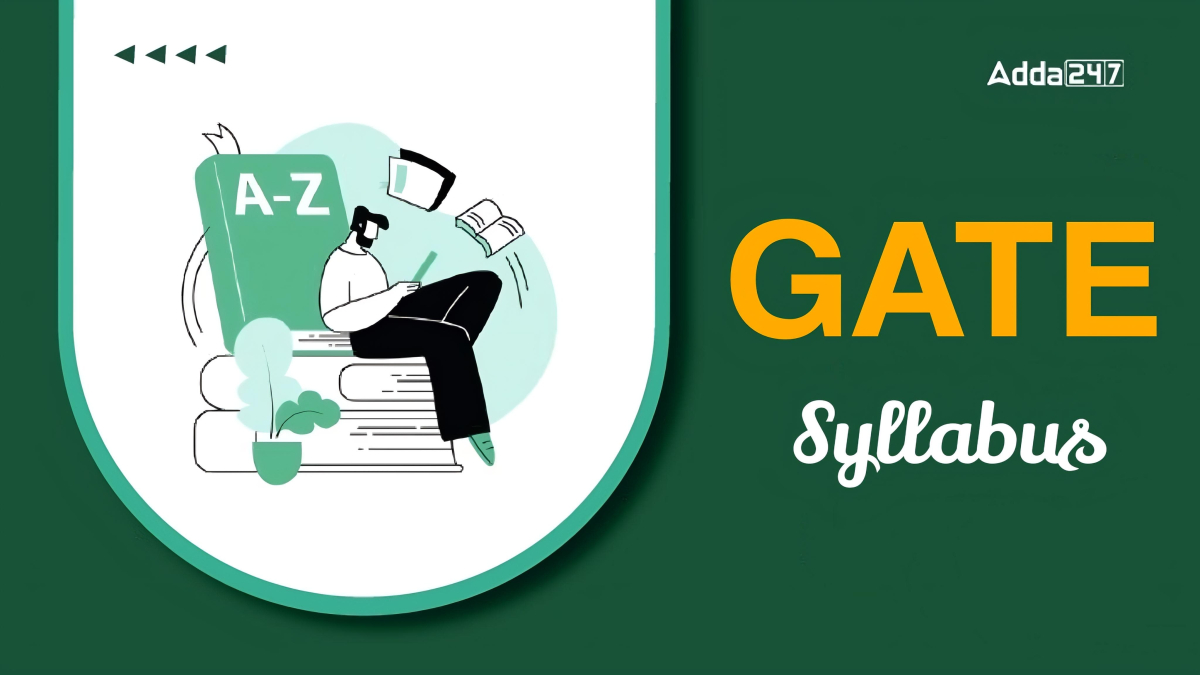
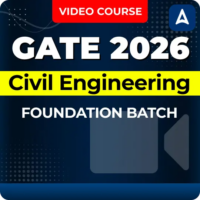
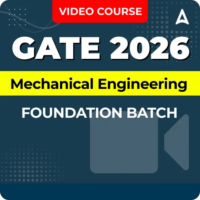
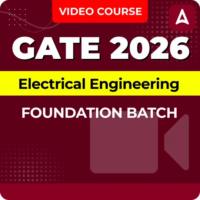

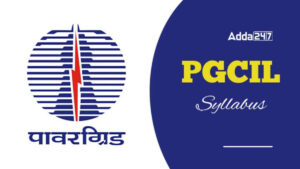 PGCIL Field Supervisor Syllabus and Exam...
PGCIL Field Supervisor Syllabus and Exam...
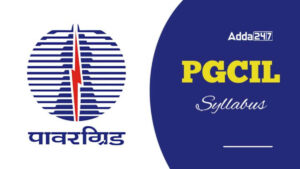 PGCIL Field Engineer Syllabus 2025, Exam...
PGCIL Field Engineer Syllabus 2025, Exam...
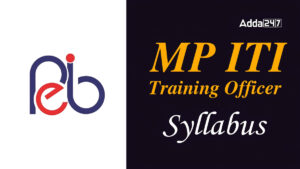 MP ITI Training Officer Syllabus 2025, S...
MP ITI Training Officer Syllabus 2025, S...
